Life
Sign up for our newsletter
We summarize the week's scientific breakthroughs every Thursday.
-
 Paleontology
PaleontologyAge and origin of Earth’s early fossils questioned
Some of Earth's earliest trace fossils may not be fossils at all, a new study argues.
-
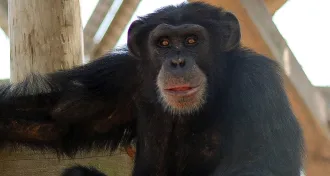 Life
LifeEbola vaccine shows promise for saving apes
Results of a clinical trial suggest that vaccination of wild apes could protect them from infectious diseases.
-
 Life
LifeStarchy foods more filling than fiber, lab tests suggest
Tests of gut microbe digestion of potato starch and fiber suggest that moving away from grass-heavy ancestral diets may not be the reason for obesity epidemic.
-
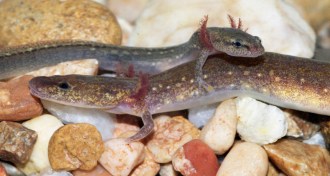 Animals
AnimalsNew salamander stays young at heart
A new salamander species was long mistaken for the juvenile form of another.
-
 Plants
PlantsIsland life prompts evolution of larger plant seeds
In 40 species of plants, the island versions of seeds were larger than mainland counterparts, perhaps to keep the seeds from being lost at sea.
-
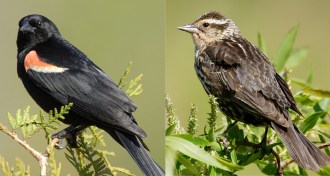 Life
LifeDrab female birds had more colorful evolution
Males weren’t the main players in evolution of sex differences in avian plumage.
By Susan Milius -
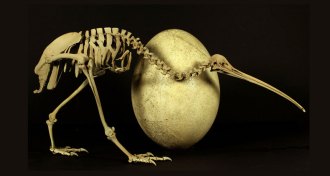 Life
LifeFlightless birds’ history upset by ancient DNA
The closest known relatives of New Zealand’s small, flightless kiwis were Madagascar’s elephant birds, so ancestors must have done some flying rather than just drifting with continents.
By Susan Milius -
 Health & Medicine
Health & MedicineUrine is not sterile, and neither is the rest of you
Despite what the Internet says, urine does contain bacteria, a new study finds. And so does your brain, the womb, and pretty much everywhere else.
-
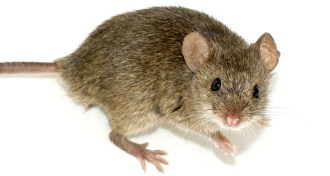 Neuroscience
NeuroscienceLife span lengthens when mice feel less pain
When rodents are missing a sensory protein, their metabolism revs up and they live longer.
-
 Life
LifeA slow heartbeat in athletes is not so funny
Endurance athletes often experience sinus bradycardia, a slow heartbeat. A new paper shows this effect may be due to changes in the “funny channel” of the sinoatrial node.
-
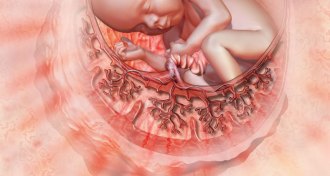 Life
LifeIn a surprise find, placentas harbor bacteria
Mouth bacteria make their way to the placenta. Some mixes may trigger premature birth.
-
 Animals
AnimalsMice really do like to run in wheels
When scientists stuck a tiny wheel out in nature, wild mice ran just as much as their captive counterparts do.